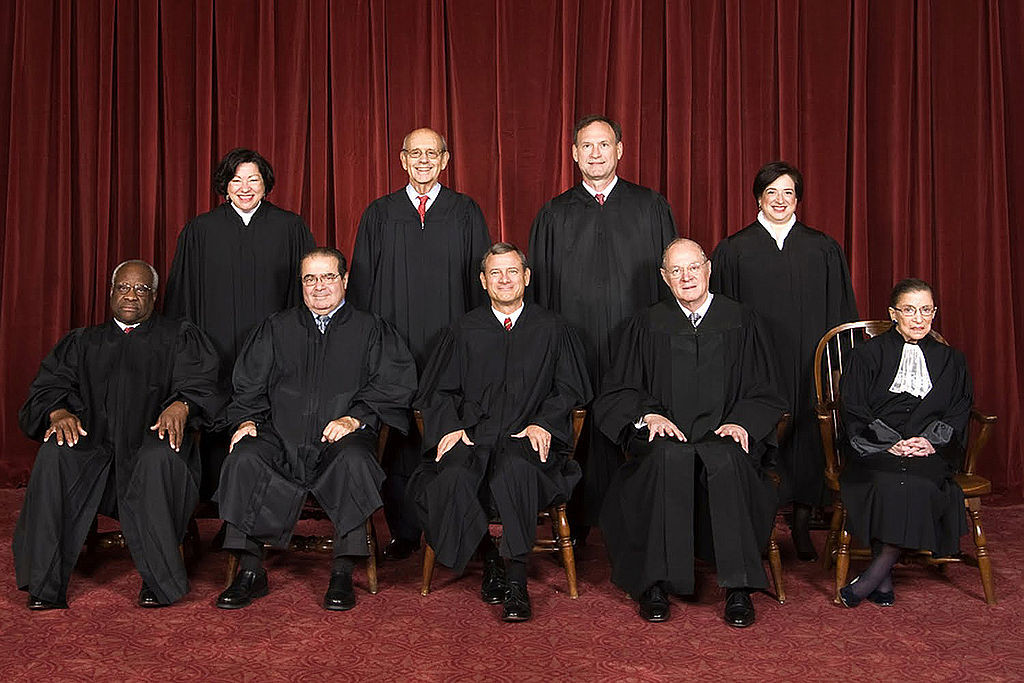January 22-2016

The Islamic Republic, which routinely assails the United States as dishonest, has taken a case before the US Supreme Court in an effort to block the seizure of about $2 billion in Iranian assets found hidden in a US bank.
The case was argued publicly last Wednesday before the nine justices of the Supreme Court. Jeffrey A. Lamken was the lawyer speaking on behalf of Bank Markazi.
The questions from some of the justices suggested they saw some logic in the arguments being made by Iran.
Iran argued that Congress trampled on the authority of the US judiciary by passing a law dictating that families of Americans killed in attacks blamed on Iran should get the money uncovered.
Other justices, however, seemed supportive of the more than 1,000 Americans waging a long legal battle seeking compensation for the 1983 bombing of the US Marine Corps barracks in Beirut, the 1996 Khobar Towers bombing in Saudi Arabia and other attacks the courts have rule were orchestrated by Iran.
The nine justices were hearing an appeal by Bank Markazi, Iran’s central bank, of a 2014 lower court ruling that stated the funds, found in New York in a Citibank trust account, should be handed over to the plaintiffs. A decision is expected in June.
Chief Justice John Roberts, embracing an argument made by Iran, appeared troubled that Congress improperly sought to direct the outcome of a legal dispute by passing a law in 2012 specifically to help the American plaintiffs obtain the Iranian funds.
The money would go toward satisfying a $2.65 billion judgment against Iran that the families won in US federal court in 2007.
During a one-hour hearing, Roberts defended the role of the judiciary and emphasized that the authority of Congress is limited. “Their job is to pass laws. Our job is to decide a case. When there’s a dispute under one of the laws they pass, that’s our job,” Roberts said.
At issue is whether Congress violated the separation of powers principle enshrined in the US Constitution that divides authority among the government’s executive, legislative and judicial branches.
Roberts used the analogy of a “strongman” leader of a foreign country calling a judge on behalf of an ally to tell the judge how to rule in a case. “I’m not sure I see what the difference is here,” Roberts said.
Other justices, however, indicated they did not see the law as infringing upon the judiciary’s independence as Roberts did. From the far right of the court. Justice Antonin Scalia said Congress regularly enacts narrow laws that affect ongoing legal cases. This is allowed so long as it does not undo an already-decided case, Scalia said.
From the far left of the court. Justice Ruth Bader Ginsburg noted the case concerned judgments in 19 different lawsuits that were consolidated, casting doubt on whether Congress was meddling in a single case.
Justices Elena Kagan and Stephen Breyer suggested the case be viewed from a foreign policy perspective. In foreign policy disputes, courts generally give deference to the executive branch. In the Iran case, the Obama Administration and congressional leaders support the plaintiffs’ efforts to get their hands on the money.
Justice Anthony Kennedy, who often casts the deciding vote in close cases, wondered if Congress has more leeway when the US has “very delicate relations” with the country in question.
But Kennedy grilled lawyers on both sides. He bristled when the Obama Administra-tion’s lawyer, Edwin Kneedler, said that as long as Congress makes a change to the underlying law when it passes a bill, it does not matter whether the new law has broad application or affects only one ongoing legal case. “I find that a very odd distinction,” Kennedy sniffed.
Meanwhile, in Tehran, the Majlis was working on a bill meant to punish the United States if Iran loses the suit. The bill demands compensation from the United States for 11 actions, including the 1953 coup that overthrew Prime Minister Moham-mad Mossadegh, the 1987 confrontation in Mecca in which hundreds of Iranians were killed by Saudi police and for every Iranian killed in the 1980-88 war with Iraq. (See Iran Times of January 8, page two.)
The Majlis bill was sponsored by 203 deputies, more than two-thirds the Majlis members.
